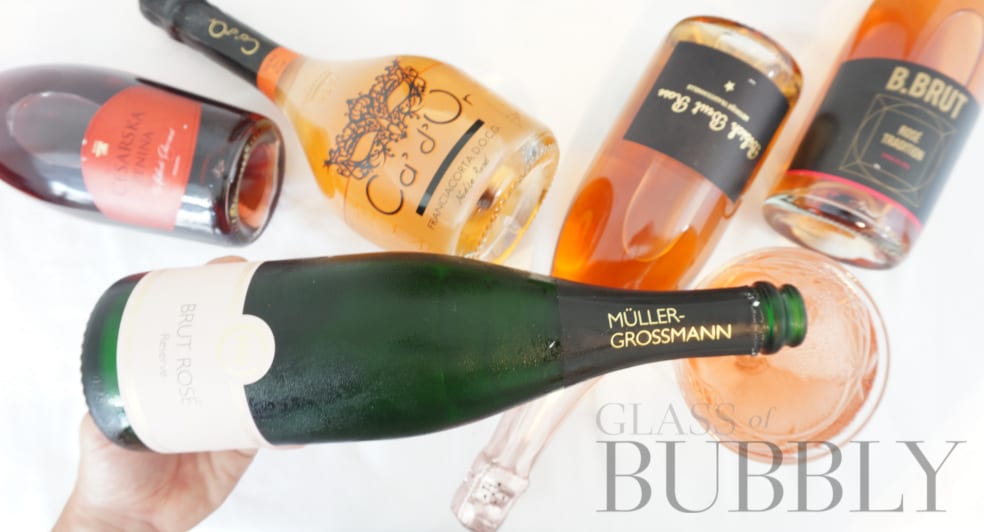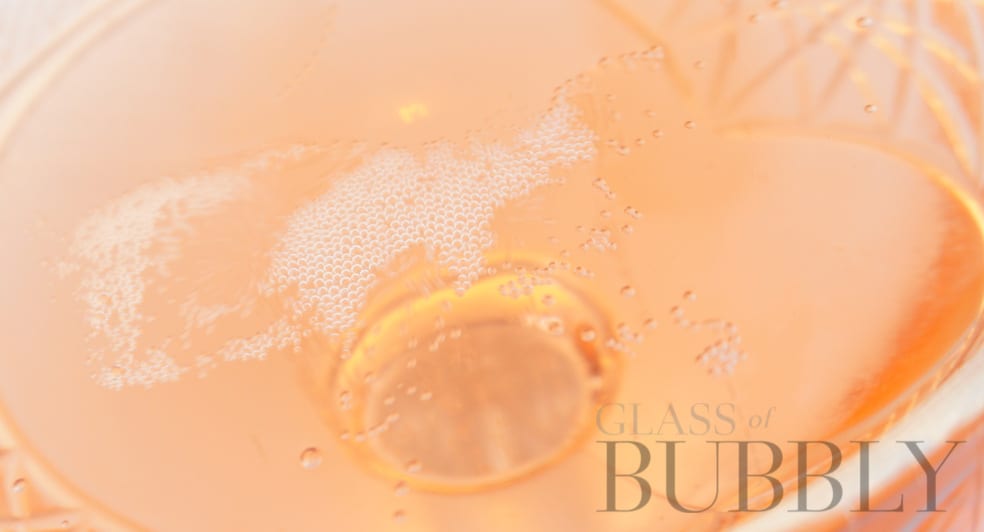5 Rosés from 5 Countries
6th July 2021

Universally loved and represented across the globe, rosé sparkling wines have that something a little more special, more romantic and more intriguing for many. Usually a touch more expensive than their white alternative, rosé will be more often or not for those extra special occasions especially when it comes to Champagne (and more recently Prosecco).
“Sparkling rosé wine will mostly gain their shades of pink via skin contact of black grapes or by adding a small percentage of still red wine. Depending on the wine production method and the end results required, rosé sparkling wines can take on not only many different shades, but also offer a variety of tasting experiences.” source GlassofBubbly
Seen also as very versatile when pairing with foods and depending on sugar levels, rosés are great with desserts along with spicy dishes.
Rosé sparkling wines can take many variations and styles, from sweeter (extra dry) styles of non complicated aromas and flavours to those aged and complex dry options. From Champagne to Japan, rosé sparkling wines are a popular option for buyers and most wineries producing bubbles will usually have at least one rosé label on offer.

Rosé Sparkling Wines can take all different shades of colour from light pink to darker orange and beyond…
For this article I wanted to look at 5 rosés from 5 countries which are:
Italy (Franciacorta)
Slovenia
Croatia
Austria
Luxembourg
Europe is a wonderful place to start for sparkling wines, indeed there is almost a lifetime of explorations to discover and enjoy. Characteristics change as terroirs alter between regions / countries / degree of latitude. Winemaking styles also vary and of course so do the grapes.
I simply pulled out 5 rosé sparkling wines from our section of 2020 award winners making sure I chose a single option from random European countries. Many of course will say that the likes of European powerhouse wine producing countries are the best (old world) such as France, Italy and Germany to name a few.
What is Rosé de Saignée?
“Saignée: A less common process is the saignée method which translates to English as ‘bleeding’ method. A more labour intensive way to produce rosé Champagne in that the colour from the skins of the red grapes during the pressing is released into the blend. The longer the skin contact is the darker the Champagne will become. Usually, a rosé de saignée Champagne will be a darker shade over the assemblage options.” source GlassofBubbly
I decided to leave out France (Champagne) and also Prosecco (Rosé) for this article and tasting so we can take a look at lesser known rosé sparkling wine countries and styles:
ITALY (Franciacorta) – Ca’ d’Or DOCG Noble Rosé: “Aromas of dark berry fruits, near ripe blackberry mostly. Taste is lighter in style showing a toasty red berry fruit character with damson. Fresh and clean.”
SLOVENIA – Kmečka Zadruga Krško Cesarska Penina (Method Charmat)Polsuho: “Deep red berries expression on the nose. Ripe red berries, touch of cream cheese and red apple in flavours – Sweeter style though delivered elegantly in the palate.”
CROATIA – Bibich Brut Rosé: “An orange tart, tangerine skin, menthol on the nose – almost Lucozade style. Dry flavours of orange, spices, peach skin and much more.”
AUSTRIA – Muller Grossman Brut Rosé Reserve: “Light expression of red berries and wild strawberry on the nose. Served well chilled at 6°C and it was most refreshing. Red berries and faint ripe strawberries in flavours with a mouth-watering dryness in mid length to close. Ideal for spicy food pairings such as BBQ meats and curries.”
LUXEMBOURG – B.Brut Rosé Tradition: “A fresh red berry fruit expression on the nose with hints of petroleum. Flavours are initially dry red berries and opens in mid length to be slightly more rounded / sweeter.“
![]()
Christopher Walkey
Co-founder of Glass of Bubbly. Journalist and author focused on Champagne & Sparkling Wines and pairing them with foods.
